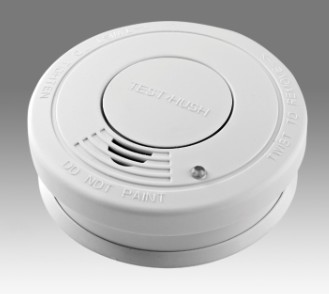Ensuring the safety of one's home and the well-being of […]
Ensuring the safety of one's home and the well-being of its occupants is a fundamental priority for any homeowner. Among the essential components of a comprehensive home safety system are smoke alarms. These devices serve as the first line of defense against the threat of fire, providing early warning that allows individuals to evacuate and emergency services to respond promptly. However, not all smoke alarms are created equal, and it's crucial to select models that meet stringent standards and certifications to ensure their effectiveness.
One of the most widely recognized certifications for smoke alarms is the UL (Underwriters Laboratories) certification, particularly prevalent in the United States. Products bearing the UL mark have undergone rigorous testing procedures to evaluate their performance, reliability, and compliance with established safety standards. These tests assess various aspects of the smoke alarm's functionality, including its sensitivity to smoke particles, response time, and ability to detect different types of fires.
In Europe, smoke alarms are often certified according to EN (European Norm) standards, with EN 14604 being the specific standard for smoke alarm devices. This certification ensures that smoke alarms meet stringent requirements for design, construction, performance, and testing procedures, thereby guaranteeing their effectiveness in detecting smoke and issuing timely alerts. Similarly, in France, smoke alarms may carry the NF (Norme Française) certification, indicating compliance with French safety and quality standards.
In Canada, smoke alarms undergo evaluation by the Canadian Standards Association (CSA) to ensure their compliance with Canadian safety standards. CSA-certified smoke alarms have been tested to meet specific performance requirements for detecting smoke and fire hazards, providing homeowners with confidence in their reliability and effectiveness.
Meanwhile, in the United Kingdom, smoke alarms may bear the BS (British Standards) Kitemark, signifying compliance with British Standards for quality and safety. BS 5839 is the British Standard covering fire detection and alarm systems, including requirements for smoke alarms in residential properties. Smoke alarms meeting BS standards are deemed reliable and effective in fire detection, providing homeowners with peace of mind regarding their safety.
While adherence to national and international standards is essential, it's also crucial for smoke alarms to comply with local building codes and regulations. These codes may stipulate specific requirements for the type, placement, and installation of smoke alarms within residential or commercial buildings, ensuring that they are installed correctly and provide optimal protection against fire hazards.
Selecting smoke alarms that meet stringent standards and certifications is critical for ensuring the safety and well-being of individuals and property. By choosing certified smoke alarms and adhering to recommended installation and maintenance practices, homeowners can enhance their home safety systems and minimize the risk of fire-related incidents. Ultimately, prioritizing fire safety measures is essential for protecting lives and property from the devastating consequences of fires.